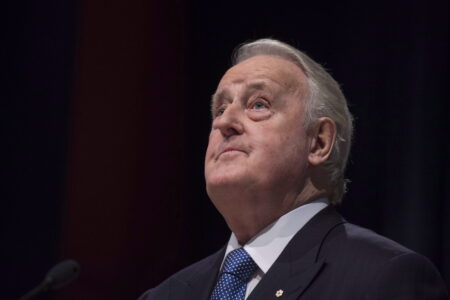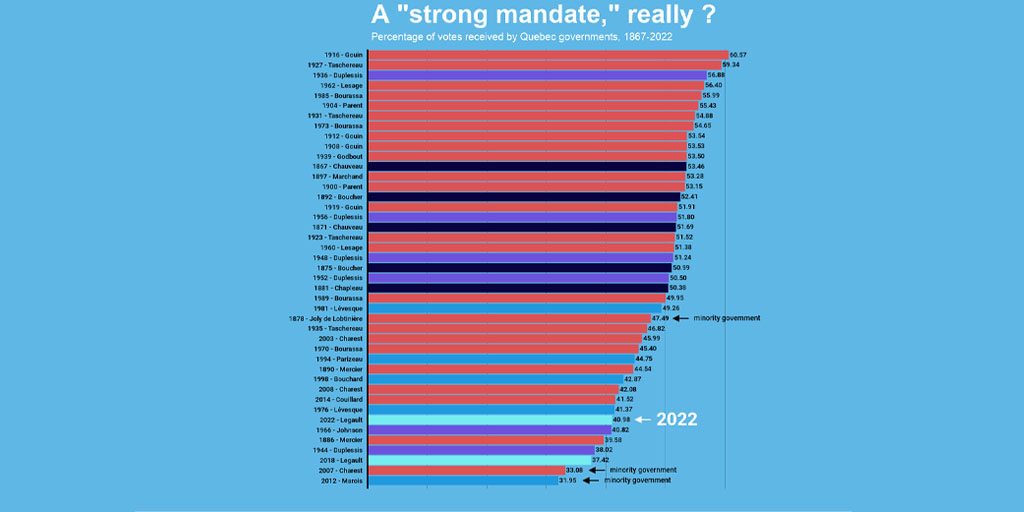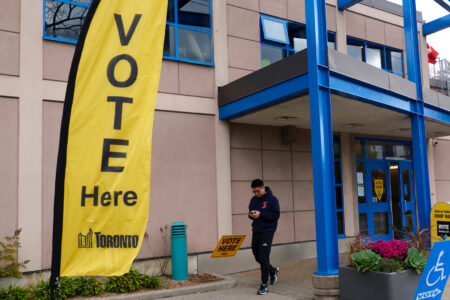
Following the most recent Quebec election, several media outlets claimed that François Legault had obtained a “strong mandate” (un “mandat fort”), which is also what the Coalition avenir Québec claims. But is this really the case?
Legault’s party won the most seats in over 30 years. But when we look at the mandate the CAQ received as a proportion of the votes cast, the victory appears less clear-cut.
In fact, in 43 elections, Legault received the 7th lowest support level since 1867, and the 5th lowest for a majority government.
- Since 1867, Quebec has elected 40 majority governments and three minority governments;
- The elected government has won a majority of votes (50 per cent + 1) in 24 of the 43 elections;
- Of the 10 lowest percentage votes for a government, five have occurred in the past 15 years, including the three lowest: 2012 (Marois, 31.9 per cent); 2007 (Charest, 33.1 per cent); 2018 (Legault, 37.4 per cent). The other two were in 2018 (Legault, 37.4 per cent ) and 1976 (Lévesque, 41.4 per cent).
- François Legault’s score in 2022 is the 5th lowest for a majority government;
- Several changes in government have been initiated by a government with a relatively low percentage of the vote, thanks to our voting system: Mercier (39.58 per cent in 1886), Duplessis (38 per cent in 1944), Lévesque (41.4 per cent in 1976), Legault (37.4 per cent in 2018);
- The first minority government in Quebec’s history was elected in 1878, with 47.49 per cent of the vote; 14 majority governments have received fewer votes, most of them since the 1960s;
- Five times, an elected majority government received fewer votes than the second-place party (1886, 1890, 1939, 1966 and 1998).
***
On the same topic :
Quebec’s lopsided campaign is only one part of a troubling democratic trend









